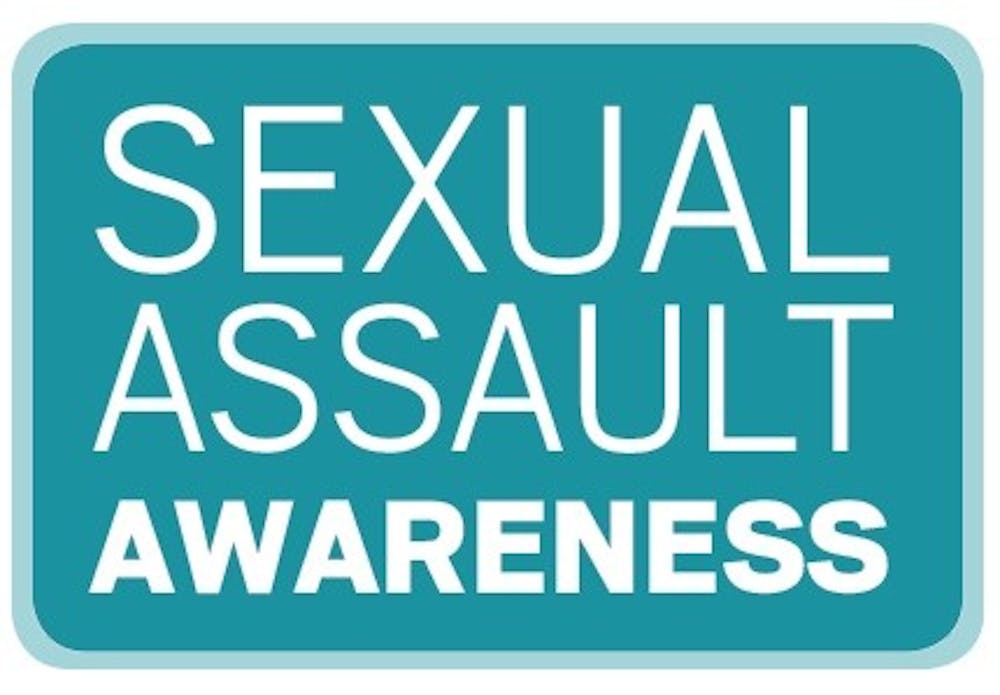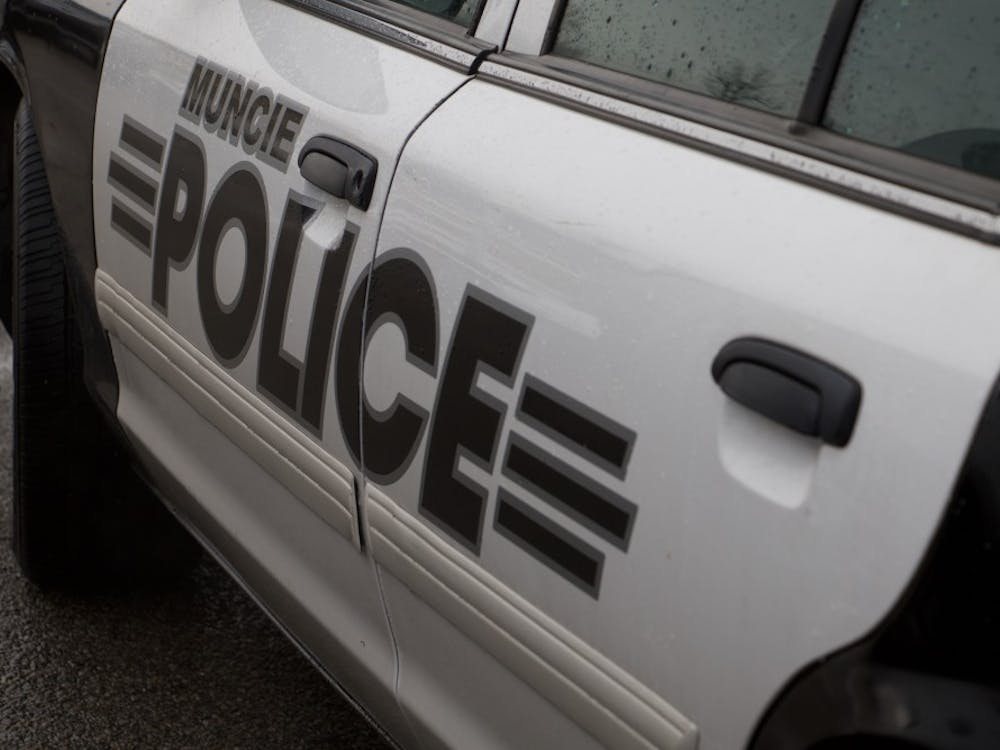Sexual assault statistics:
- 1 in 6 American women has been the victim of an attempted or completed rape in her lifetime
- 1 in 33 American men has been the victim of an attempted or completed rape in his lifetime
- Women ages 18-24 enrolled in college are three times more likely than regular women to be a victim of sexual violence
- 20 percent of female student victims ages 18-24 report their assault to police
- 8 percent of all sexual assaults occur while the victim is in school
Source: Rape, Abuse and Incest National Network
*Editor’s note: Emma Barkley is a pseudonym to protect her identity
Emma Barkley* doesn’t remember anything about the night of her rape.
It happened on New Year's Eve when she was out with a large group of friends and acquaintances. Barkley knew she was supposed to go to work the next morning, and she wanted to leave.
The next thing she knew, she woke up with no clothes on and no memory of the night.
The rape kit she went to get the next day didn’t show any evidence of drugs — even though Barkley firmly believes she was drugged. But common date rape drugs like GHB, ketamine and rohypnol leave the body quickly, according to the Office of Women’s Health, U.S. Department of Health and Human Services. Barkley showed a copy of her rape kit to the Daily News.
Barkley filed a complaint with the university’s adjudication process, which started a shorter, easier version of the criminal process. She had classes with the person who assaulted her, and she needed to report to the university to get him out of those classes.
The goal of the university process is to find out if there was a violation of the student code or not. Because the university process isn’t a legal proceeding, it doesn’t end in an arrest and the highest punishment possible is expulsion.
Barkley had a positive experience with the university, but some university reporting systems have caused controversy. As of March 30, 174 postsecondary institutions have 220 sexual violence complaints against them about investigations, and many are calling for something to change.
Because of the Clery Act, universities have to report the number of sexual assaults that occur on campus to the public. Many universities try to cover sexual assaults up and don’t do anything about it, according to a USA Today study. This leads to issues when students want to report their assault to the university and the university wants nothing to do with it.
In other countries, universities handling sexual assault cases is unheard of.
Nina Burrowes, a British research psychologist who specializes in the psychology of sexual abuse said it’s “insane” that universities can handle something as serious as sexual assault cases.
“If someone was murdered on campus, would they also take over the criminal justice part of that, or would the police be like, ‘Oh no no, that’s us?’” Burrowes said. “Because sexual assault and murder, they both go under the category of serious crime.”
All sexual assault cases are investigated by the police in the United Kingdom, Burrowes said. Just the fact that the U.S. is having so many problems with universities not doing a good job dealing with sexual assault cases shows that they shouldn’t be in charge of it, she said.
“Someone cheats on an exam, great, fine, perfect,” she said. “But rape? That’s just insane. I wonder if colleges have thought of the impact they’re having on the offenders. It’s having an impact on them, too, along the lines of, ‘That’s OK, carry on as you are, it’s not really important.’"
But Mike Gillilan, director of community standards and student rights, said the university system was put in place to give students an option other than the criminal process. The system starts when the complainant reports to Katie Slabaugh, the Title IX investigator and associate dean of students. If there’s enough evidence to proceed, then it goes to Gillilan, and potentially to the sexual misconduct board.
The university gives an avenue that is faster and more user-friendly than the criminal system, he said. But most importantly, it provides a forum for people to be heard.
Gillilan said he’d be surprised if people were completely satisfied with the process because it can’t do everything, but it can help in other ways.
“It can help them get their lives back together and recover,” he said. “Sometimes being able to tell your story is part of the recovery process for folks.”
Because of the amount of people coming forward to utilize the university process — 160 students since Fall 2014 — Gillilan said he thinks the university’s process works pretty well. He attributes more people coming forward to having an effective reporting process.
“I think … they’re also starting to hear from the grapevine that you will be treated OK,” Gillilan said. “You may not get everything you want, but you’re going to be treated OK. So I think there’s a trust in the system.”
He said whenever a school shows that there aren’t any reports, there’s an issue.
Indiana University and Purdue University reported 22 and nine rape cases on campus in 2014, respectively, according to their campus security reports. Fellow Mid-American Conference school Kent State University, however, didn’t report any in 2014. In comparison, Ball State had 19.
“The problem we have is that it happens,” Gillilan said. “The more reports we have, it’s not that it happens more here, it’s that people feel like they can report it.”
These reported cases are a small fraction of the sexual assaults that actually happen on campuses, however. An estimated 68 percent of sexual assaults go unreported, according to the Rape, Abuse and Incest National Network. Along with that, college women are four times more likely to be sexually assaulted, compared to other age groups.
The main reason people don’t report their sexual assault is because it is a personal matter, according to a U.S. Department of Justice study.
Barkley said going through the university’s process was helpful for her recovery. It was long and tough, but now a year later, she can say it was the right thing for her to do.
“It’s more frustrating than anything, and I couldn’t really see the light at the end of the tunnel,” she said. “But looking back, I can without a doubt say I did everything I could have done to make sure my attacker was held responsible.”
However, Barkley said the part of the process that involves the Sexual Misconduct Board is “broken.” The board is the one who ultimately decides if the respondent committed the act of sexual violence or not.
“I think that the Title IX investigator and the director of student rights fight like hell for students, but I think the Sexual Misconduct Board will always err on the side of caution,” Barkley said. “They will never hold anyone responsible if there’s even a shadow of a doubt it could come back on them in the form of a lawsuit or a different appeals process.”
But Larry Markle, a member of the Sexual Misconduct Board, didn’t see it that way. The board uses a preponderance of evidence standard to decide if the violation was committed, which Markle identified as “50 percent plus one.”
“Our role isn’t to err on the side of caution, but to make a determination based on what is presented to us,” he said.
These are difficult situations, Markle said, so there is a lot of work put into reviewing the cases and all information that it brings.
“This is very sensitive information that sometimes can be very tough info to read and hear and to try to determine what’s the right outcome in these situations,” he said. “It’s a very difficult task. In most cases, it’s not clear-cut.”
However, many cases don’t even make it to the board. Since the board was created in Fall 2014, 160 cases have been brought to Slabaugh, but only 12 have gone through the full adjudication process.
The lack of cases that make it to the board can be because of a variety of reasons. Complainants may ask the case to not be investigated, there could be insufficient evidence or the respondent may accept responsibility for the act, Slabaugh said.
Barkley, who was one of the few whose case went all the way through the board, chose to only go through the university’s process. She didn’t want to start a criminal investigation because the process takes much longer and is more intensive.
She has ulcerative colitis, which is made worse by stress, and the day of the sexual misconduct board hearing she was hospitalized for four days.
She ended up deciding that sacrificing her health wasn’t worth going through the criminal process and dealing with the stress all over again.
“I just wanted to move on,” Barkley said.
And the university’s reporting process helped her do just that, she said, no matter what critics say about it.
“I feel like it’ll feel normal one day, but that day is not today, and I don’t feel like it’s going to be this year,” Barkley said. “I feel like until I get off campus, it’s not going to [feel normal]. … Campus is like a daily reminder of things happening.”





